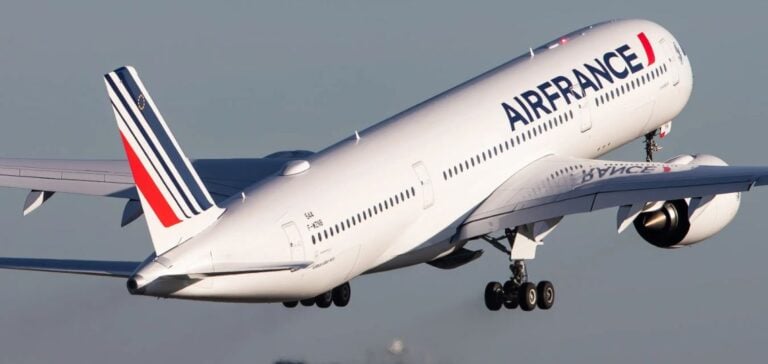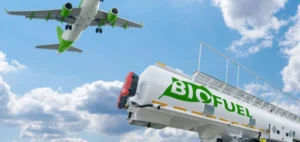A sector under pressure to reduce emissions
A new report from the think tank Transport & Environment (T&E) evaluates the efforts of 77 airlines worldwide to integrate sustainable aviation fuels (SAF). These fuels, produced from biomass, used oils, or decarbonized electricity, are considered a key tool to reduce emissions in the aviation sector.
According to this study, only 10 airlines have made significant strides in adopting these solutions, while the majority remain largely reliant on fossil kerosene. T&E notes that many players focus on SAF derived from food crops, a less viable long-term option for the industry.
Air France-KLM: ambitious goals
Among the companies analyzed, Air France-KLM stands out due to its integration of advanced biofuels derived from waste, such as used cooking oils. With a target of incorporating 10% SAF into its fuel by 2030, the group exceeds the European Union’s regulatory requirements of 6% for the same timeframe.
United Airlines and Norwegian, also ranked highly, exhibit similar ambitions, although on a smaller scale compared to the Franco-Dutch group.
Limited production capacity
Despite the initiatives of certain airlines, SAF production remains marginal within the energy sector. Transport & Environment criticizes major fossil fuel producers, such as TotalEnergies, Shell, and ExxonMobil, for their limited commitment. These companies plan to produce only 3 million tons of SAF by 2030, representing less than 3% of their current aviation fuel production.
Conversely, the e-kerosene market, produced using hydrogen and decarbonized electricity, is dominated by small companies and startups. However, these actors lack the financial capacity to meet large-scale market demands.
Airlines face a strategic challenge
Transport & Environment highlights the importance of airlines adopting a proactive stance with their fuel suppliers. “If suppliers do not diversify their offering with truly sustainable fuels, the decarbonization goals set for 2050 will remain out of reach,” said Jérôme du Boucher, aviation director at T&E France.
This situation underscores a strategic challenge for airlines: ensuring access to sustainable aviation fuels to maintain competitiveness while meeting increasing regulatory expectations.






















